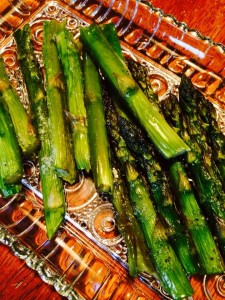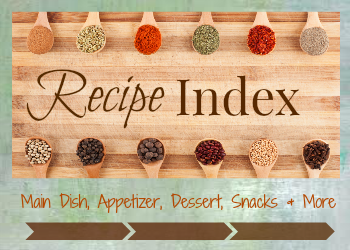 Spring’s first fresh sprigs may just very well be asparagus—the first vegetable you can harvest!! Asparagus sprigs are delectable fresh vegetables that you can pick from the garden or pick up from your local grocery store! They are easily roasted and fully loaded with vitamins, vitamin C, calcium, and iron!
Spring’s first fresh sprigs may just very well be asparagus—the first vegetable you can harvest!! Asparagus sprigs are delectable fresh vegetables that you can pick from the garden or pick up from your local grocery store! They are easily roasted and fully loaded with vitamins, vitamin C, calcium, and iron!
I (Litsa) love roasted asparagus—-above you see my winter “Asparagus-appetizer”! A fresh bunch of spears from Kroger that I washed, cut the hard ends off the bottom, and roasted in the oven with olive oil and sea salt. They were full of flavor melting in my mouth—-and hard to share with my five year old who loves vegetables as much as I do.
Health Benefits of Asparagus
- Asparagus is a low calorie vegetable. 100 g fresh spears give only 20 calories. More calories will be burnt to digest than gained, the fact, which fits into the category of low calorie or negative-calorie vegetables.
- Spears contain moderate levels of dietary-fiber. 100 g of fresh spears provide 2.1 g of roughage. Dietary fiber helps control constipation conditions, decrease bad (LDL) cholesterol levels by binding to it in the intestines, and regulate blood sugar levels. Studies suggest that high-fiber diet help cut down colon-rectal cancer risks by preventing toxic compounds in the food from absorption.
- Fresh asparagus spears are the good source of anti-oxidants such as lutein, zea-xanthin, carotenes, and crypto-xanthins. Together, these flavonoid compounds help remove harmful oxidant free radicals from the body protect it from possible cancer, neuro-degenerative diseases, and viral infections. Their total antioxidant strength, measured in terms of oxygen radical absorbance capacity (ORAC value), is 2150 µmol TE/100 g.
- Fresh asparagus are rich in folates. 100 g of spears provide about 54 µg or 14% of RDA of folic acid. Folates are one of the important co-factors for DNA synthesis inside the cell. Scientific studies have shown that adequate consumption of folates in the diet during pre-conception period and during early pregnancy, help prevents neural tube defects in the newborn baby.
- Fresh asparagus also contains fair amounts of anti-oxidant vitamins such as vitamin-C, vitamin-A, and vitamin-E. Regular consumption of foods rich in these vitamins helps the body develop resistance against infectious agents and scavenge harmful, pro-inflammatory free radicals from the body.
- Asparagus is good in minerals, especially copper and iron. In addition, it has small amounts of some other essential minerals and electrolytes such as calcium, potassium, manganese, and phosphorus. Potassium is an important component of cell and body fluids that helps controlling heart rate and blood pressure by countering effects of sodium. Manganese is used by the body as a co-factor for the antioxidant enzyme, superoxide dismutase. Copper is required in the production of red blood cells. Iron is required for cellular respiration and red blood cell formation.
These benefits only begin to touch upon the reasons to include these green spears in your diet this spring! You may enjoy them so much that like my uncle you’ll see them in the garden and say, “Mm…asparagus…” and snap it right at the base and start munching on it! I loved this image of him eating raw asparagus as an adult. Additionally, I loved the dining/kitchen tables in our cousin’s homes offering grilled and/or roasted asparagus. It is an easy vegetable to include on your menu plan and although it doesn’t make my grocery list often, I know that I’d love it to visit our kitchen more. Even if you are the only one that will eat asparagus in your household, you won’t gain weight——eat the entire bunch!
Or plant it this spring——-you’ll harvest it for years!
Credit for benefits: Nutrition Facts
Latest posts by Litsa @How to Have it All (see all)
- Mushrooms: Portobello, Morels, & More - April 25, 2016
- Giving Back: Get Involved - December 2, 2015
- The Autumn Advantage - December 1, 2015






